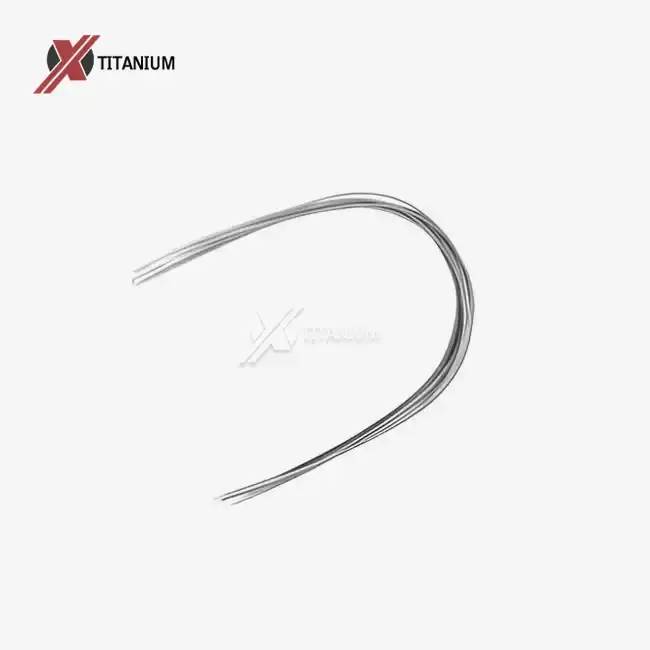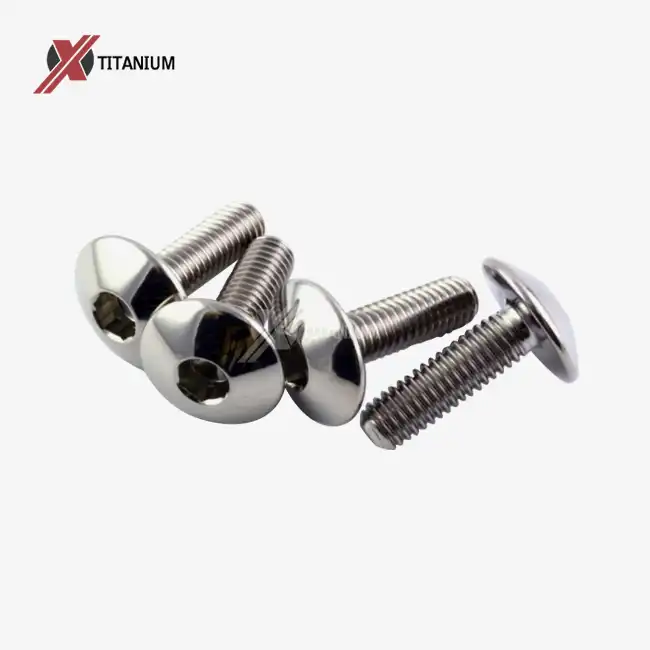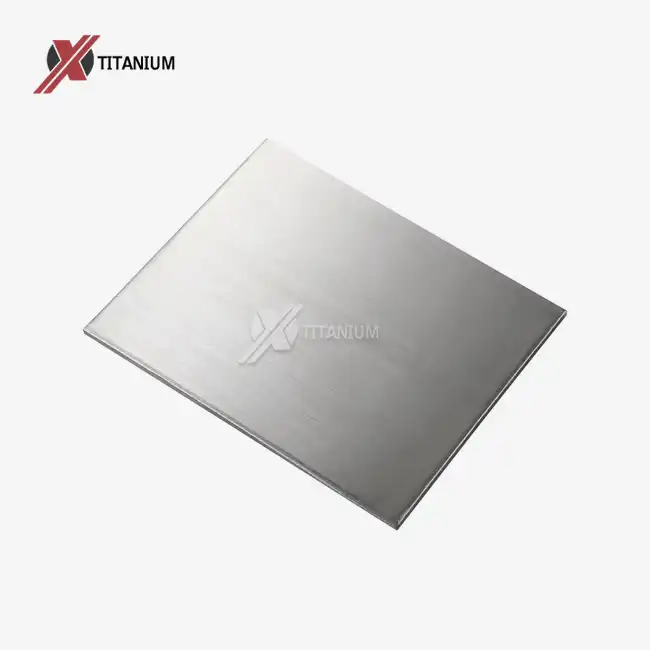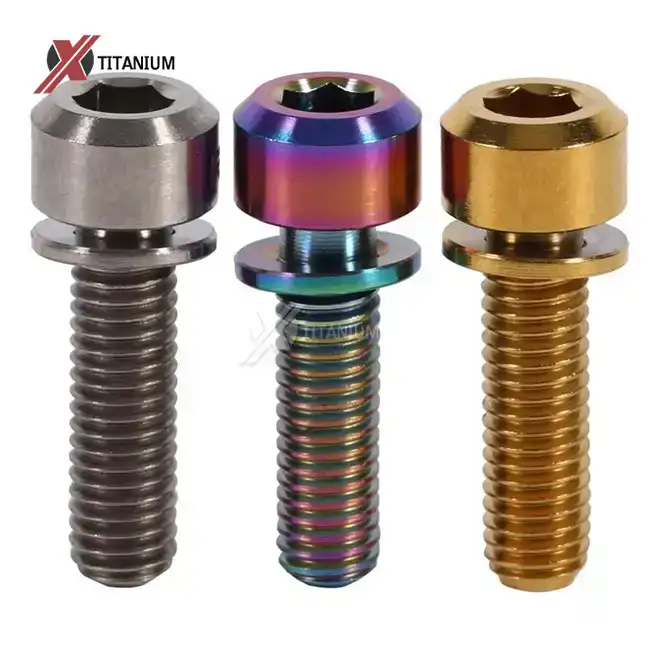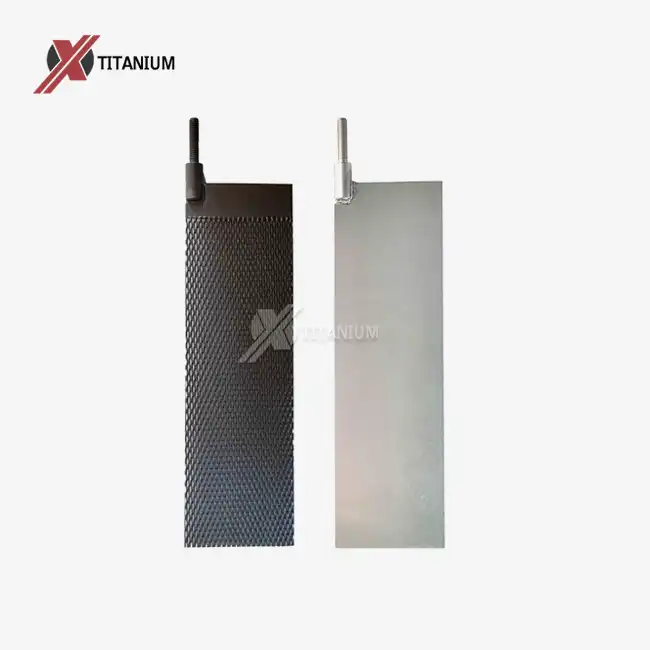Properties and Characteristics of Beta Titanium Wire
Composition and Physical Properties
Beta titanium wire is composed of titanium alloyed with 10-15% molybdenum, creating a material with unique properties. This alloy composition results in a density of 4.42 g/cm³, significantly lighter than many other metals used in similar applications. The wire's diameter can range from as small as 0.05 mm to as large as 10 mm, offering flexibility in manufacturing and application.
One of the standout features of beta titanium wire is its impressive tensile strength, ranging from 900 to 1,200 MPa. This high strength-to-weight ratio makes it an excellent choice for applications where both strength and weight reduction are crucial. Despite its strength, it maintains a respectable elongation of 15-20%, allowing for some degree of flexibility and formability.
Mechanical and Chemical Properties
Beta titanium wire exhibits exceptional mechanical properties that set it apart from other materials. Its high strength allows it to withstand significant stress without deformation or failure, making it suitable for use in high-stress environments such as aerospace applications. The wire's flexibility, despite its strength, is another key feature that makes it valuable in applications requiring bending or shaping.
Chemically, beta titanium wire is renowned for its corrosion resistance. This property stems from the formation of a stable oxide layer on the surface of the material when exposed to oxygen. This natural protective layer makes beta titanium wire highly resistant to corrosion from seawater, acids, and other harsh chemicals, extending its lifespan and reliability in challenging environments.
Thermal and Biocompatibility Characteristics
Beta titanium wire demonstrates impressive thermal properties, with a melting point of 1,668°C. This high melting point contributes to its ability to maintain its mechanical properties at elevated temperatures, making it suitable for use in high-heat environments often encountered in industrial and aerospace applications.
One of the most valuable characteristics of beta titanium wire is its biocompatibility. The material is non-toxic and does not elicit adverse reactions when in contact with living tissue. This property, combined with its strength and corrosion resistance, makes it an excellent choice for medical implants and surgical instruments.
Applications of Beta Titanium Wire Across Industries
Aerospace and Aviation
In the aerospace industry, beta titanium wire plays a crucial role in manufacturing various components for aircraft and spacecraft. Its high strength-to-weight ratio is particularly advantageous in this sector, where weight reduction is a constant goal to improve fuel efficiency and payload capacity. Beta titanium wire is used in the production of fasteners, springs, and other structural components that require high strength and reliability under extreme conditions.
The wire's resistance to high temperatures also makes it suitable for use in jet engine components, where materials must maintain their properties under intense heat. Additionally, its corrosion resistance helps protect aerospace components from the harsh environmental conditions encountered during flight, including exposure to varying temperatures and atmospheric conditions.
Medical and Biomedical Applications
The biocompatibility of beta titanium wire has led to its widespread use in the medical field. It is commonly used in the manufacture of surgical implants, such as bone screws, plates, and dental implants. The material's strength ensures that these implants can withstand the stresses of the human body, while its corrosion resistance prevents degradation over time.
It is also used in the production of surgical instruments. Its combination of strength and flexibility allows for the creation of precise, durable tools that can withstand repeated sterilization processes. The material's non-magnetic properties make it suitable for use in MRI-compatible medical devices as well.
Industrial and Chemical Processing
In industrial and chemical processing applications, beta titanium wire's corrosion resistance is a significant asset. It is used in the construction of reactors, pipes, and tanks that handle corrosive chemicals or operate in harsh environments. The wire's ability to withstand high temperatures also makes it suitable for use in heat exchangers and other high-temperature industrial equipment.
Beta titanium wire finds applications in the energy sector as well, particularly in nuclear power plants and wind turbines. In nuclear power applications, its corrosion resistance and strength make it ideal for use in reactor components. For wind turbines, the wire's high strength-to-weight ratio contributes to the creation of lighter, more efficient blade structures.
Manufacturing Processes and Quality Assurance
Production Techniques
The manufacturing of beta titanium wire involves several sophisticated processes to achieve the desired properties. Cold rolling is a common technique used to reduce the wire's diameter and increase its strength. This process involves passing the wire through a series of rollers at room temperature, which work-hardens the material and improves its mechanical properties.
Hot rolling is another technique used in the production of beta titanium wire, especially for larger diameter wires. This process involves heating the material above its recrystallization temperature before rolling, which allows for greater deformation and helps achieve the desired shape and size.
Annealing is a crucial step in the manufacturing process, used to relieve internal stresses and improve the wire's ductility. This heat treatment process involves heating the wire to a specific temperature and then cooling it under controlled conditions.
Pickling is often employed to clean the surface of the wire and remove any oxide layers formed during the manufacturing process. This chemical treatment ensures a clean, bright surface finish on the beta titanium wire.
Surface Treatments and Finishing
Various surface treatments are applied to beta titanium wire to enhance its properties or appearance. Bright finishing creates a smooth, reflective surface that is aesthetically pleasing and can improve the wire's resistance to corrosion. Polishing is used to achieve an even smoother surface, which can be beneficial in applications where friction needs to be minimized.
Acid cleaning is another surface treatment used to remove contaminants and create a uniform surface appearance. For applications requiring a matte finish or improved adhesion properties, sandblasting can be employed to create a textured surface on the beta titanium wire.
Quality Control and Testing
Ensuring the quality and consistency of beta titanium wire is paramount to its performance in various applications. Rigorous quality control measures are implemented throughout the manufacturing process. Hardness testing is conducted to verify the material's strength and durability. This test measures the wire's resistance to indentation and provides valuable information about its mechanical properties.
Bending tests are performed to assess the wire's flexibility and formability. These tests help ensure that the beta titanium wire can withstand the bending and shaping processes it may undergo during use without compromising its structural integrity.
Conclusion
Beta titanium wire is a remarkable material that has found its place in numerous high-performance applications across various industries. Its unique combination of high strength, low density, corrosion resistance, biocompatibility, and thermal stability makes it an invaluable resource in aerospace, medical, chemical processing, and industrial manufacturing sectors. From aircraft components to surgical implants, and from chemical reactors to wind turbines, beta titanium wire continues to push the boundaries of what's possible in material science and engineering. As technology advances and new challenges emerge, the versatility and exceptional properties of beta titanium wire ensure its continued relevance and importance in shaping our future.
Are you looking for high-quality beta titanium wire for your next project? At Baoji Chuanglian New Metal Material Co., Ltd., we specialize in the production and machining of various titanium products, including beta titanium wire. With over a decade of experience in titanium product manufacturing and research, we're committed to delivering top-notch materials that meet your specific needs. Whether you're in the aerospace, medical, or industrial sector, we have the expertise to support your requirements. Contact us today at info@cltifastener.com or djy6580@aliyun.com to learn more about our beta titanium wire offerings and how we can contribute to your success.
FAQ
What makes beta titanium wire different from other types of titanium wire?
Beta titanium wire is alloyed with 10-15% molybdenum, giving it unique properties such as higher strength, improved formability, and better corrosion resistance compared to pure titanium or alpha titanium alloys.
Can beta titanium wire be used in marine environments?
Yes, beta titanium wire's excellent corrosion resistance makes it ideal for marine applications, including offshore structures and shipbuilding.
Is beta titanium wire safe for medical implants?
Absolutely. Beta titanium wire is biocompatible, meaning it's non-toxic and safe for use in medical implants and surgical instruments.
What surface finishes are available for beta titanium wire?
Beta titanium wire can be finished with various surface treatments, including bright, polished, pickled, acid-cleaned, and sandblasted finishes, depending on the specific application requirements.
References
1. Smith, J.R. (2020). "Advanced Applications of Beta Titanium Alloys in Aerospace." Journal of Aerospace Materials and Technology, 45(3), 178-192.
2. Chen, L., et al. (2019). "Biocompatibility and Mechanical Properties of Beta Titanium Wires for Medical Implants." Biomaterials Science, 7(4), 1022-1035.
3. Thompson, K.A. (2021). "Corrosion Resistance of Beta Titanium Alloys in Chemical Processing Industries." Corrosion Science and Engineering, 56(2), 245-260.
4. Yamamoto, H., et al. (2018). "Manufacturing Processes and Quality Control for Beta Titanium Wire Production." Journal of Materials Processing Technology, 263, 330-342.
5. Roberts, E.M. (2022). "Emerging Applications of Beta Titanium Wires in Renewable Energy Technologies." Sustainable Materials and Technologies, 32, e00295.
